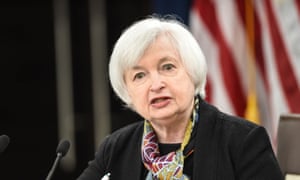Fresh evidence of subdued consumer spending and soft inflation in the US has bolstered expectations that the Federal Reserve will hold back from raising interest rates over the coming months.
Government figures showed consumer spending, which makes up more than two-thirds of US economic activity, edged up just 0.1% in February. Furthermore January’s growth in consumer spending was revised down sharply to 0.1% from the 0.5% growth previously reported. At the same time, a key inflation measure for the US central bank remained below target.
The price index favoured by the Fed – the core personal consumption expenditures index – stood at 1.7% in February, unchanged from January’s rate and below the central bank’s 2% inflation target.
The Fed increased interest rates in December, ending seven years of near-zero borrowing costs ushered in to shore up the world’s biggest economy after the global financial crisis. Financial markets had expected more rate rises to follow but turmoil on world stock exchanges, a collapsing oil price and a slowdown in China have stayed the Fed’s hand.
Investors will be scouring a speech by the Fed’s chair Janet Yellen on Tuesday for further clues as to when the central bank will next raise interest rates. Keeping policy on hold earlier this month, the Fed flagged risks from “global economic and financial developments” and predicted inflation would remain low in the near term, in part because of earlier declines in energy prices.
With the US jobs market improving, economists have been predicting that wage growth will pick up and help lift inflation in the wider economy. But for now, inflationary pressures in the US appear muted.
The core personal consumption expenditures price index favoured by the Fed stood at 1.7% in February, unchanged from January’s rate and below the central bank’s 2% target.
The data also showed personal incomes in the world’s biggest economy grew only 0.2% last month. That marked a slowdown from 0.5% growth in January and reflected a drop in wages and salaries in February, the first such decrease for five months.
